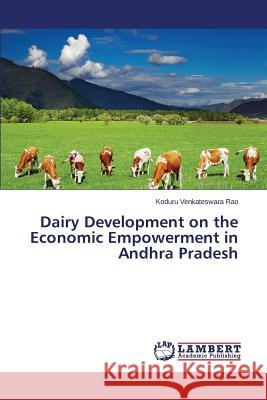Dairy Development on the Economic Empowerment in Andhra Pradesh » książka
Dairy Development on the Economic Empowerment in Andhra Pradesh
ISBN-13: 9783659598425 / Angielski / Miękka / 2014 / 340 str.
Dairy Sector in India is formed of around 60 million cattle and 40 million buffaloes, reared by about 70 million farmers. These animals produce about 80 million tonnes of milk every year making India the number one producer of milk in the world. Even then per capita availability of milk at present is only around 215 g/day, while WHO has recommended a per capita daily consumption level of 280 g/ day for better health. Also demand for milk further increases with rapid growth of human population and standard of living necessitating urgent measures for increasing milk production in the country. Dairy farming is the primary occupation of a good proportion of farmers in India. On the basis of the findings of the study, following suggessions may be given to improve the conditions of the households engaged in dairying, to overcome various issues involved in dairying and also to improve the living conditions of the women milk producers which reflect on their socio economic empowerment.
Dairy Sector in India is formed of around 60 million cattle and 40 million buffaloes, reared by about 70 million farmers. These animals produce about 80 million tonnes of milk every year making India the number one producer of milk in the world. Even then per capita availability of milk at present is only around 215 g/day, while WHO has recommended a per capita daily consumption level of 280 g/ day for better health. Also demand for milk further increases with rapid growth of human population and standard of living necessitating urgent measures for increasing milk production in the country. Dairy farming is the primary occupation of a good proportion of farmers in India. On the basis of the findings of the study, following suggessions may be given to improve the conditions of the households engaged in dairying, to overcome various issues involved in dairying and also to improve the living conditions of the women milk producers which reflect on their socio economic empowerment.











